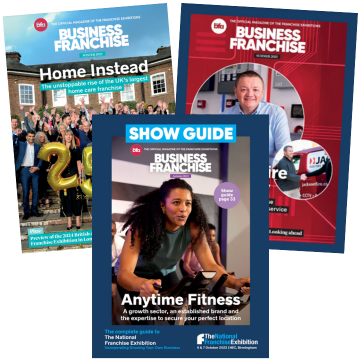Preparation is key

Many potential startup franchisees are daunted by the prospect of compiling a business plan. But it should not be an intimidating process – a good business plan is a route map to future success, as well as helping you to secure finance and support.
The value of a good business plan cannot be overstated. Taking time to complete it before you start your franchise will help you think methodically and develop and sharpen your ideas about your business. So what are the key things you will need to consider when preparing your plan?
Your plan should set out details of the type of business you will be operating in your chosen franchise. The plan should define the long-term objectives. A good franchisor will help with this, but you should understand the figures and ‘own’ the business plan, as it will provide a blueprint for running the business and a series of benchmarks for both you and the franchisor to check progress against.
A good business plan will contain the following:
• Summary business description – details of the franchise being purchased and the financial needs.
• Market analysis & product service – research and identify local competition and
assess what likely demand for the product/ service will be in the specific territory.
• Market strategy – outline intentions for marketing the product / service and how the sales figures shown in the projections will be generated.
• Management plan – include details of the type of business (eg sole trader, limited company) and CVs of key personnel. Set out the structure and key skills of the management team and staff.
• Operations – analyse the capacity and efficiency of the current operations and any planned improvements. What premises does the business have? What production facilities are there and how is production organised? What is the capacity of the current facilities compared with existing and forecast demand? What management information systems are in place?
• Financial data – at least two years’ projected figures are required, including a balance sheet, cashflow and profit-and loss statement, ensuring that projections correspond with the information outlined above and they’re realistic. If it is a resale franchise, include details of the existing business being sold. Has the business been growing? Is it profitable? A copy of previous years’ accounts should also be included. Be confident about your
figures and memorise any vital facts about the business.
• SWOT analysis – a one-page analysis of Strengths, Weaknesses, Opportunities and Threats. Strengths might include brand name, quality of product or management. Weaknesses might be lack of finance or dependency on a few customers. Opportunities might be increasing demand or a competitor going bankrupt. Threats might be a downturn in the economy or the emergence of a new competitor.
To summarise:
Do:
• Think about the purpose of the business plan before you write it
• Focus on the key information the reader
will want
• Highlight future plans as well as describing
the current situation
• Be realistic
Don’t:
• Waffle or include unnecessary detail
• Include over-optimistic assumptions
• Ignore competitive threats and weaknesses
The more solid information that you can gather, the better the business plan will be. When requesting finance, the bank will look to assess the proposal using all of the areas covered above.
A well-researched and written plan will show the bank that you are committed and understand the business, and is likely to be looked at more favourably than a request from one who is unprepared.
You may also be interested in...




